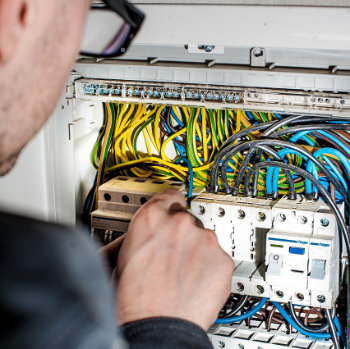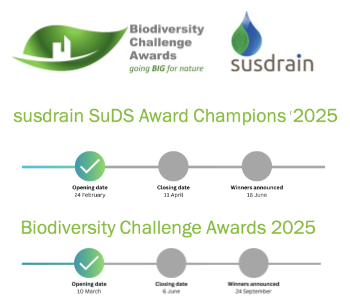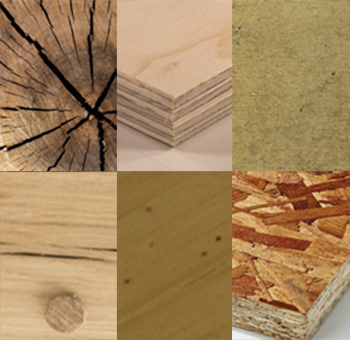Advanced manufacturing
'Advanced manufacturing' is a very broad term that refers to a range of modern techniques and practices involving the latest developments in technology.
It includes all aspects of the manufacturing process from design through to production and is commonly described as including (amongst many others) advanced forms of:
- Materials.
- Computer aided design and computer aided manufacturing (CAD/CAM).
- Offsite manufacturing.
- Prefabrication and preassembly.
- Automation, robotics and other intelligent production systems.
- High precision technologies: Laser processing, electrical machining and mechanical machining.
- Modelling techniques such as building information modelling and finite element modelling.
- 3D printing (additive manufacturing).
- Sustainable and green technologies and processes.
[edit] Related articles on Designing Buildings
- 3D printing.
- Advanced construction technology.
- Advanced manufacturing technology.
- Agile.
- Block planning.
- Building technology.
- Construction innovation.
- Construction Innovation Hub.
- Design for Manufacture and Assembly (DfMA).
- Dynamic conditions for project success.
- Lean construction.
- Line of balance (LOB).
- Modern methods of construction.
- Offsite manufacturing.
- Off-site manufacturing.
- Off site, on track.
- Platform approach to design for manufacture and assembly.
- Understanding agile in project management.
Featured articles and news
Insights of how to attract more young people to construction
Results from CIOB survey of 16-24 year olds and parents.
Focussing on the practical implementation of electrification.
Sustainable Urban Drainage and Biodiversity
Awards for champions of these interconnected fields now open.
Microcosm of biodiversity in balconies and containers
Minor design adaptations for considerable biodiversity benefit.
CIOB student competitive construction challenge Ireland
Inspiring a new wave of Irish construction professionals.
Challenges of the net zero transition in Scotland
Skills shortage and ageing workforce hampering Scottish transition to net zero.
Private rental sector, living standards and fuel poverty
Report from the NRH in partnership with Impact on Urban Health.
.Cold chain condensing units market update
Tracking the evolution of commercial refrigeration unit markets.
Attending a conservation training course, personal account
The benefits of further learning for professsionals.
Restoring Alexander Pope's grotto
The only surviving part of his villa in Twickenham.
International Women's Day 8 March, 2025
Accelerating Action for For ALL Women and Girls: Rights. Equality. Empowerment.
Lack of construction careers advice threatens housing targets
CIOB warning on Government plans to accelerate housebuilding and development.
Shelter from the storm in Ukraine
Ukraine’s architects paving the path to recovery.
BSRIA market intelligence division key appointment
Lisa Wiltshire to lead rapidly growing Market Intelligence division.
A blueprint for construction’s sustainability efforts
Practical steps to achieve the United Nations Sustainable Development Goals.
Timber in Construction Roadmap
Ambitious plans from the Government to increase the use of timber in construction.
ECA digital series unveils road to net-zero.
Retrofit and Decarbonisation framework N9 launched
Aligned with LHCPG social value strategy and the Gold Standard.

























Comments
"Advanced manufacturing" refers to the use of cutting-edge technologies, processes, and techniques to improve the manufacturing industry's efficiency, productivity, and product quality. It encompasses various innovations that have revolutionized how products are designed, produced, and distributed. Here are some key aspects of advanced manufacturing:
1. **Automation and Robotics**: Advanced manufacturing often involves the integration of automation and robotics to perform tasks that were traditionally done by human workers. This can lead to increased production speed, reduced errors, and improved workplace safety.
2. **Additive Manufacturing (3D Printing)**: Additive manufacturing, commonly known as 3D printing, allows for the creation of complex parts and prototypes by adding material layer by layer. It enables rapid prototyping, customization, and reduced material waste.
3. **Digital Twin Technology**: Digital twins are virtual representations of physical products or processes. They allow manufacturers to simulate and optimize the entire product lifecycle, from design and production to maintenance and performance analysis.
4. **Advanced Materials**: The development and use of advanced materials, such as composites, nanomaterials, and smart materials, can result in products with enhanced properties, such as strength, durability, and conductivity.
5. **Internet of Things (IoT)**: IoT involves connecting physical devices and equipment to the internet, enabling real-time data collection, monitoring, and analysis. In manufacturing, IoT can lead to predictive maintenance, better supply chain management, and improved operational efficiency.
6. **Artificial Intelligence (AI)**: AI technologies, including machine learning and predictive analytics, can help manufacturers make data-driven decisions, optimize processes, and identify patterns that might be difficult for humans to detect.
7. **Advanced Data Analytics**: Advanced manufacturing relies on data analytics to extract valuable insights from large datasets. This can lead to improved quality control, better demand forecasting, and optimized production processes.
8. **Lean Manufacturing and Continuous Improvement**: These principles focus on eliminating waste, improving efficiency, and constantly seeking ways to enhance processes. Technologies like AI and data analytics play a role in identifying areas for improvement.
9. **Sustainability and Circular Economy**: Advanced manufacturing techniques often incorporate sustainable practices, such as recycling and using environmentally friendly materials, to reduce the environmental impact of production.
10. **Collaborative Manufacturing**: Collaboration between humans and robots or between different manufacturers is becoming more common. This can involve co-robots working alongside human workers or different companies collaborating to create complex products.
11. **Flexible Manufacturing Systems**: Modern manufacturing systems are designed to be adaptable to changes in demand, enabling quick adjustments to production lines and product variations.
12. **Supply Chain Digitalization**: Digital tools can help optimize supply chain management, ensuring that raw materials and components are sourced efficiently and delivered on time.
Advanced manufacturing is transforming industries across the board, from aerospace and automotive to electronics and consumer goods. Its adoption can lead to improved product quality, reduced costs, increased innovation, and enhanced competitiveness on a global scale.